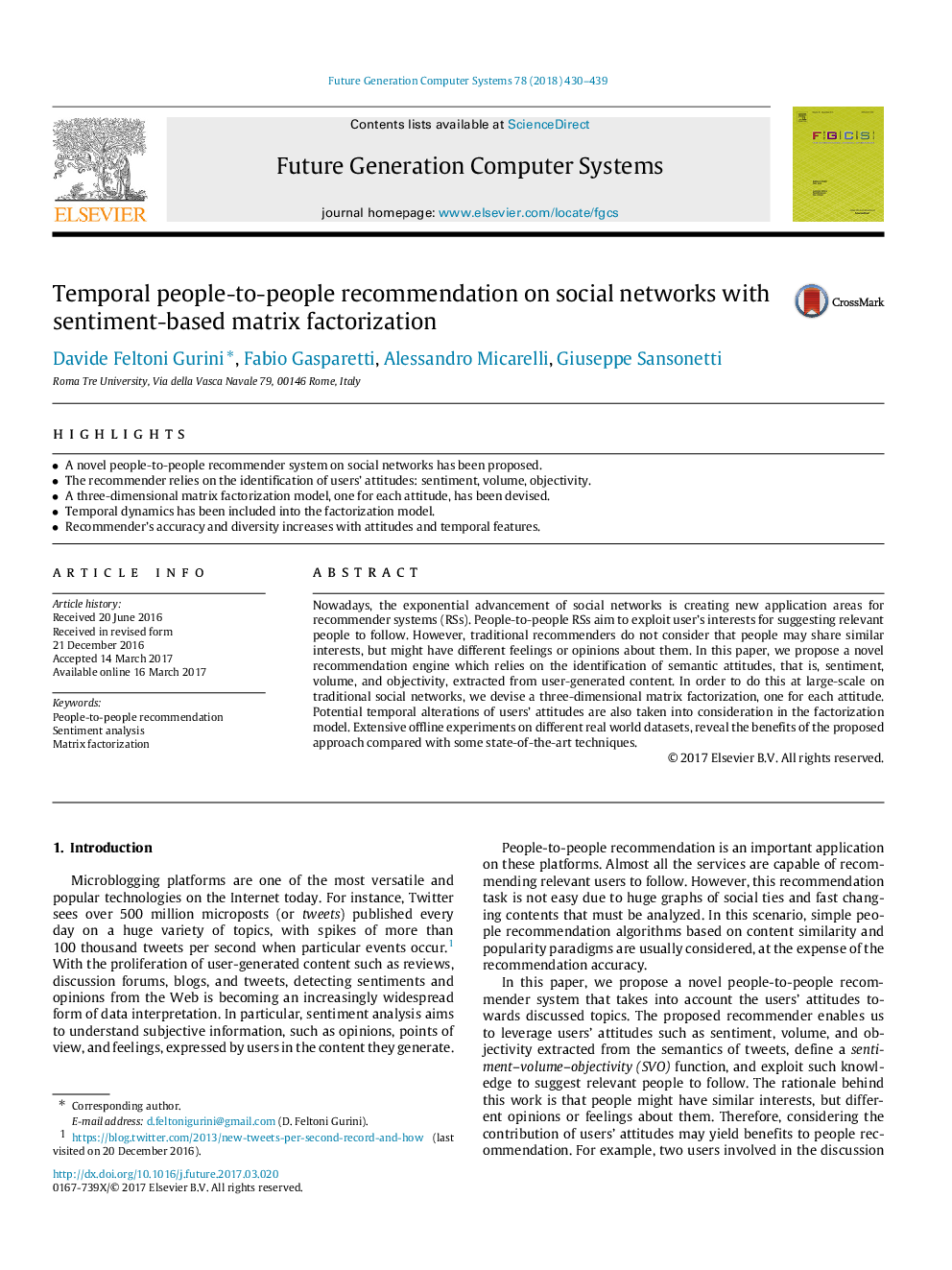| Article ID | Journal | Published Year | Pages | File Type |
|---|---|---|---|---|
| 4950289 | Future Generation Computer Systems | 2018 | 10 Pages |
â¢A novel people-to-people recommender system on social networks has been proposed.â¢The recommender relies on the identification of users' attitudes: sentiment, volume, objectivity.â¢A three-dimensional matrix factorization model, one for each attitude, has been devised.â¢Temporal dynamics has been included into the factorization model.â¢Recommender's accuracy and diversity increases with attitudes and temporal features.
Nowadays, the exponential advancement of social networks is creating new application areas for recommender systems (RSs). People-to-people RSs aim to exploit user's interests for suggesting relevant people to follow. However, traditional recommenders do not consider that people may share similar interests, but might have different feelings or opinions about them. In this paper, we propose a novel recommendation engine which relies on the identification of semantic attitudes, that is, sentiment, volume, and objectivity, extracted from user-generated content. In order to do this at large-scale on traditional social networks, we devise a three-dimensional matrix factorization, one for each attitude. Potential temporal alterations of users' attitudes are also taken into consideration in the factorization model. Extensive offline experiments on different real world datasets, reveal the benefits of the proposed approach compared with some state-of-the-art techniques.
